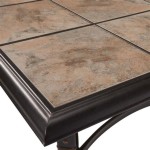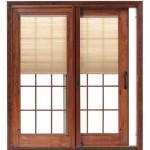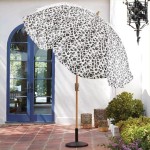How To Seal A Patio
Sealing your patio is an important step in protecting it from the elements and keeping it looking its best. A well-sealed patio will be less likely to crack, fade, or stain, and it will be easier to clean and maintain. There are a few different ways to seal a patio, and the best method for you will depend on the type of material your patio is made of.
Concrete Patios
Concrete patios are the most common type of patio, and they are relatively easy to seal. You can use a penetrating sealer or a topical sealer. Penetrating sealers soak into the concrete and create a barrier against water and stains. Topical sealers form a film on the surface of the concrete and protect it from UV rays and wear and tear. To seal a concrete patio, you will need to clean the patio thoroughly, apply the sealer according to the manufacturer's instructions, and allow the sealer to dry completely.
Brick Patios
Brick patios are another popular type of patio, and they can be sealed using a penetrating sealer or a topical sealer. Penetrating sealers are the best choice for brick patios because they will not alter the appearance of the bricks. Topical sealers can be used on brick patios, but they may darken the bricks and make them less porous. To seal a brick patio, you will need to clean the patio thoroughly, apply the sealer according to the manufacturer's instructions, and allow the sealer to dry completely.
Stone Patios
Stone patios are less common than concrete and brick patios, but they can be sealed using a penetrating sealer or a topical sealer. Penetrating sealers are the best choice for stone patios because they will not alter the appearance of the stone. Topical sealers can be used on stone patios, but they may darken the stone and make it less porous. To seal a stone patio, you will need to clean the patio thoroughly, apply the sealer according to the manufacturer's instructions, and allow the sealer to dry completely.
Choosing a Sealer
When choosing a sealer for your patio, there are a few things you should keep in mind. First, consider the type of material your patio is made of. Some sealers are only suitable for certain types of materials. Second, consider the climate you live in. If you live in a cold climate, you will need to choose a sealer that is resistant to freezing and thawing. Third, consider the amount of traffic your patio will receive. If you have a high-traffic patio, you will need to choose a sealer that is durable and wear-resistant.
Applying the Sealer
Once you have chosen a sealer, you will need to apply it according to the manufacturer's instructions. Most sealers are applied using a brush or roller. Be sure to apply the sealer evenly and to cover all of the surfaces of your patio. Once you have applied the sealer, allow it to dry completely before using your patio.
Maintaining a Sealed Patio
Once you have sealed your patio, it is important to maintain it properly. This will help to extend the life of the sealer and keep your patio looking its best. Here are a few tips for maintaining a sealed patio:
- Clean your patio regularly. This will help to remove dirt and debris that can damage the sealer.
- Inspect your patio regularly for any signs of damage. If you find any damage, repair it immediately to prevent it from getting worse.
- Reseal your patio every few years. This will help to keep the sealer in good condition and protect your patio from the elements.
By following these tips, you can keep your sealed patio looking its best for years to come.

How To Seal A Patio 6 Steps Sealing Slabs Perfectly Every Time

Sealing Your Patio Pros And Cons

How To Properly Seal A Block Paving Driveway Or Patio Step By Premium Paints Limited

Why You Should Seal Your Concrete Driveway Or Patio Gleam Team

How To Seal A Natural Stone Patio Guide Sealing Patios By Floorseal

How To Seal A Sandstone Patio Garden Ready For Summer Series Ep5

Should I Seal My Patio The Paving Experts

Can You Seal A Paver Patio Century Painting More Inc

Should I Seal My Pavers Paver Sealing And Restoration Dayton Cincinnati Columbus Oh

How To Seal Pavers On Driveways Patios More








